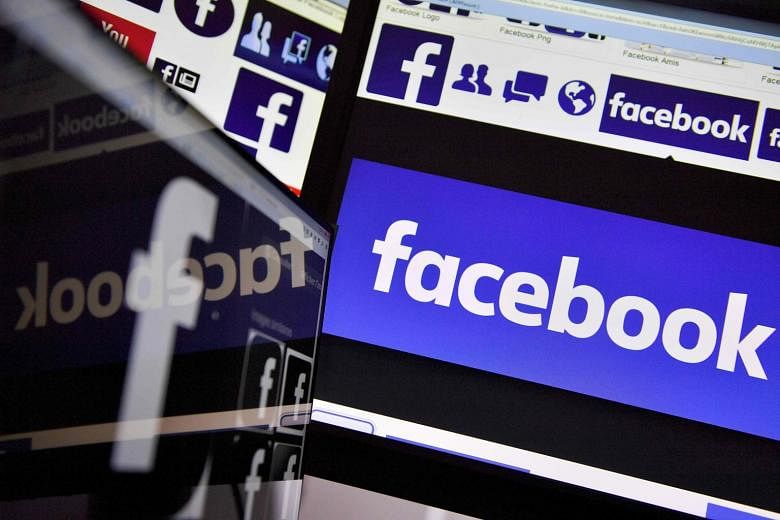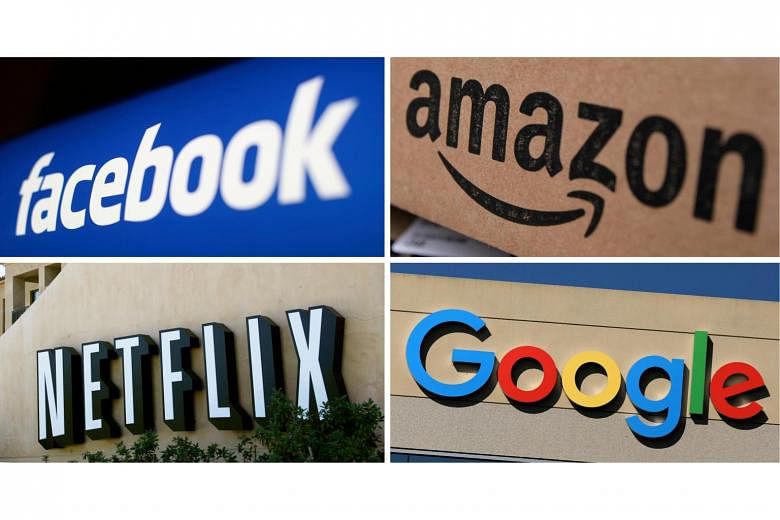The World Economic Forum in Davos has just opened. As the forum of movers and shakers has become bigger - some would say too big - over the years, it has turned into more of a dealmaking venue than a thought leadership salon.
But Davos is still the greatest place in the world to put a finger to the wind and see what the key economic and political issues of the year will be. I'm betting that top of the list will be Big Tech's attempt to rebrand itself.
The Fangs - Facebook, Amazon, Netflix and Google - are having a crisis that encompasses the cognitive, the political and the economic. Activists, regulators and even some tech executives themselves are calling for an investigation into the addictive nature of smartphones and social media.
Just recently, Congress once again grilled Facebook, Google and Twitter about their management of extremist content. The bottom line? They have no clear answers about how they are going to prevent their platforms from being used for things such as Russian election meddling, or by governments in places such as Myanmar to prepare their populations for death squads and genocide.
Indeed, there is evidence linking the rise of platform technologies with declining trust in liberal democracy itself. Fully 65 per cent of the population gets its news from platforms and aggregator sites, according to the Edelman Trust Barometer survey of 28 countries.
Sadly, the fact that Facebook, Google and Twitter now provide the world with most of its news has also coincided with a decline in trust in liberal democratic governments. The filter bubbles created by these platforms push people towards far right or left extremist content, and that has the tendency to erode their belief in existing institutions.
That is one reason it is so odd to me that the latest attempt by Facebook chief executive Mark Zuckerberg to "fix" the company's problems involves pushing people away from news sites and towards friends and family. Unfortunately, the people we are closest to are the very ones who create our filter bubbles. The bubbles are quite profitable for the platforms, which can use them to funnel opaque political and corporate advertising to individuals, messaging that usually plays to their own prejudices.
It's very often stuff that would not look good in the light of day, which is one of the reasons that the Big Tech companies are lobbying against moves such as the Honest Ads Act, which would make them put their political advertising out into the clear light of day, like any other media company.
They also continue to lobby against the repeal of loopholes such as CDA230, which would kill the special and outdated subsidies Big Tech enjoyed as a young and nascent industry in the mid-1990s, rather than the largest economic and political force in the world. Perhaps, most importantly, they are not listening to their toughest critics.
When you have a problem, and you are truly serious about solving it, you reach out to the people who are toughest on you. My own experience with Big Tech (which in recent months has been mainly with policy and PR people; since I started writing critical pieces, the top executives have not been available for comment) is that there is still a sense that people who criticise "just don't get it".
Rather, what you are seeing is a classic corporate PR playbook of deflection and delay. Facebook is making announcements around things such as workforce training in Europe, which is certainly a worthy project, but it does not address any of the big picture issues with its toxic business model.
A real shift would be opening up their algorithmic black boxes and creating a site where the public can see and search the kinds of advertising that goes out to users. It might also create clearer opt-out clauses on data tracking and have a statute of limitations on data usage.
None of this is happening. At Davos, tech executives will continue trying to humanise artificial intelligence, talk about their efforts around education and retraining, and generally push business as usual. But it is already clear that politicians on both sides of the aisle are starting to shape an economic agenda that includes, quite rightly, a focus on the monopoly power of the largest companies, most notably the Fangs.
In December, Mr Keith Ellison, the co-chairman of the Democratic National Committee, introduced new legislation, the 21st Century Competition Commission Act, to address corporate monopoly power and its anti-competitive effects. Several state Democratic congressional candidates are running on anti-Big Tech tickets, as are Republicans such as Mr Josh Hawley, a US Senate candidate who, as Missouri's attorney-general, launched an antitrust investigation into Google. Politicians such as Democrat Elizabeth Warren are ramping up the rhetoric on this topic, too.
No wonder. Last year, when the polling company Gallup asked respondents if they were satisfied with the "size and influence of major corporations", 58 per cent said no.
The key political and economic issue, not just in Davos, but in the United States mid-term elections and even the presidential election in 2020, may be the power of Big Tech.
FINANCIAL TIMES


